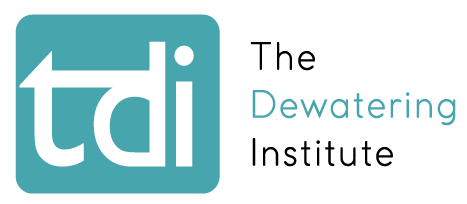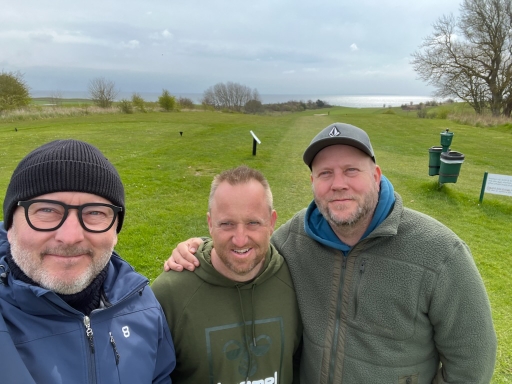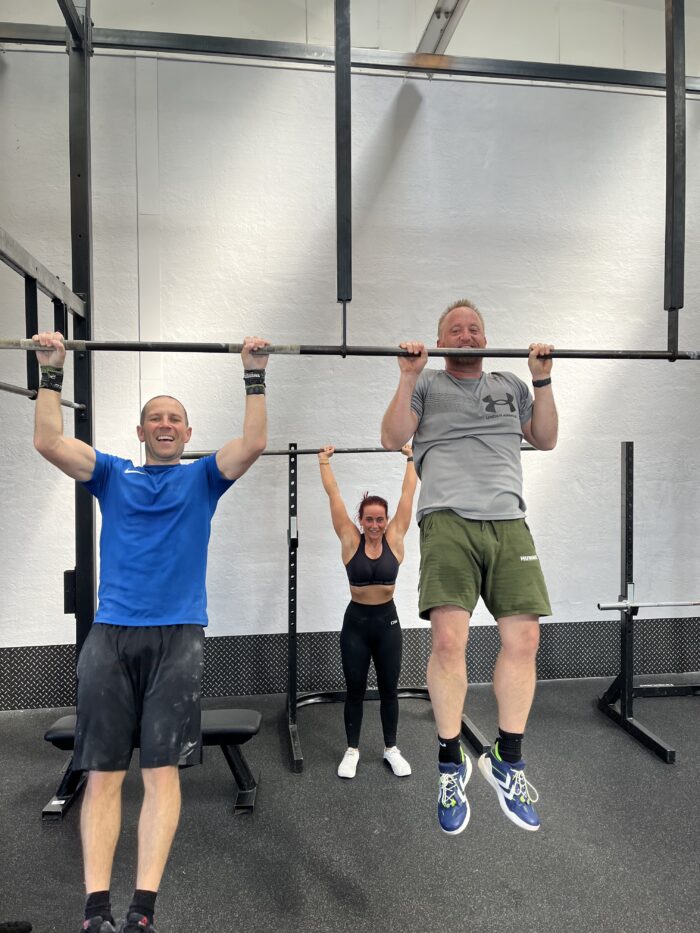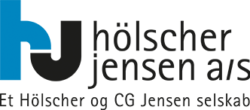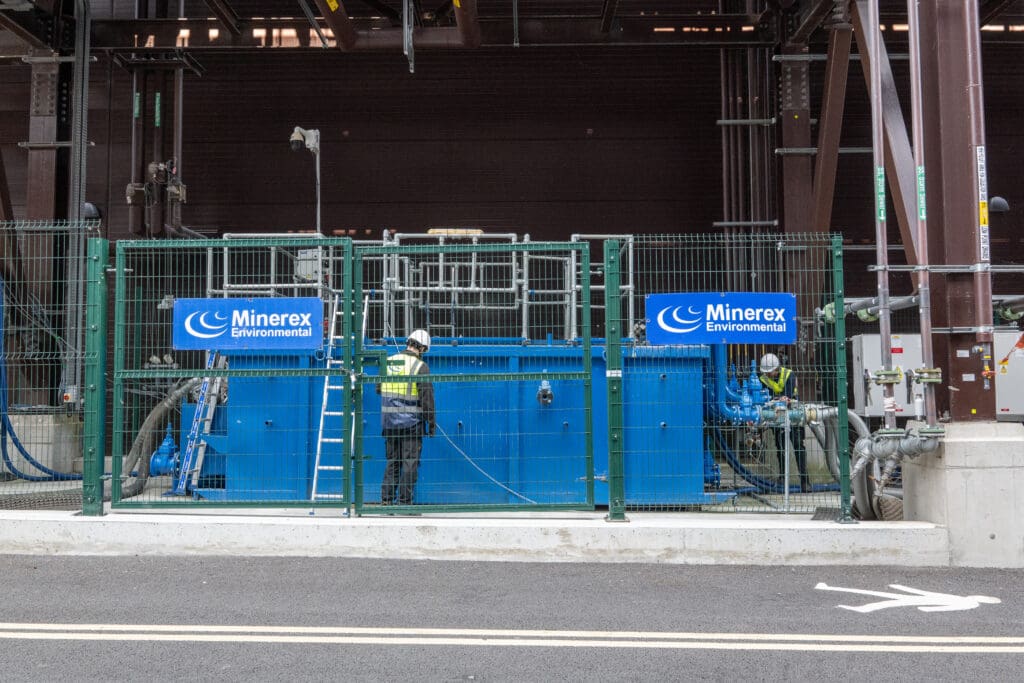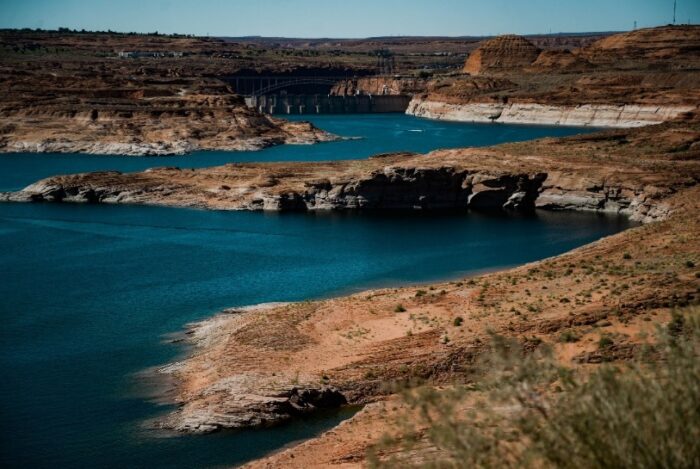As part of The Dewatering Institute‘s commitment towards knowledge sharing, TDI is developing a series of monthly interviews of industry leaders, and professionals from different parts of the world. One of the month’s editions features Jan Vognbjerg CEO of Hölscher Jensen based in Glostrup, Denmark.
Meet groundwater specialist and the new CEO of Hölscher Jensen – Jan Vognbjerg.
In April 2023, Jan took over the reins at Hölscher Jensen from Thomas Nielsen. We spoke with Jan to learn more about him, how he got into the industry and what he anticipates for the future of the dewatering industry.

Could you share a bit of your background: tell us about your groundwater history and how you got into the industry.
After studying chemistry for four years, I changed course to qualify as an environmental technician. I’m more of a hands-on person and prefer to work with my hands which is why I made the change before finishing my chemistry studies.
I began working in 2000 when I started with a consulting company. I was doing mostly field work where I would supervise drilling work and earthworks for cleaning up contaminated land and removing oil pollution.
From there I went into dewatering works as a technician, doing a lot of handips as well as handling data logs and helping with well points. It was a lot of different things – both working with my hands doing pump installations, handips, installation of well points, setting up water treatment and sampling, and doing reports. There was a lot of variety in my work.
In 2017, I moved to Hölscher Wasserbau where I was supposed to start as a project manager but ended up becoming a site manager after my manager decided to resign on my second day. It was an opportunity to do more. Slowly, my job function changed to office work with project management and managing finances. In the last few years, I have worked with sales, tendering and project startups.
At Hölscher, the company had a steady flow of work as we were often awarded jobs internally, without competition. This helped us avoid the struggle of competing with other companies for work. We worked on the Cityringen project in Copenhagen with CG Jensen.
The two companies developed a strong relationship during the Cityringen project in Copenhagen. During a start-up meeting, we proposed working together more closely, but they declined, as they wanted to establish their own dewatering department. So, we suggested forming a joint company to share knowledge and provide Hölscher with steady work from CG Jensen. Our partnership is often referred to as the “love child” of CG Jensen and Hölscher Wasserbau, as both companies were eager to collaborate.
At the end of the Cityringen project, which was a big project of 21 metro stations, there wasn’t any new work for us. However, we wanted to keep the team of people we had because they were all very good. I then worked for two years in sales and tendering to find steady work for Hölscher Jensen and keep developing the company.
It was going really well and by 2019 we had got so big and the work was too much for me on my own. So the board decided to appoint a director for the company. They first asked me if I’d like the job or if they should appoint someone else. At the time I was not ready for it, which is when Thomas joined the company as director until this year. Thomas found what he called his “dream job”, so he left to go do what he really loves which has to do with concrete. The board then came to me again to ask if I was ready to be the director now and I accepted their offer.
At that point, I’ve been with the company for 7 years and was the very first employee, so I thought perhaps now it’s time for me to take over and see if it fits. It’s worked out quite nicely. Now, my work is more to do with budgets and strategy. There’s more management, but business is good.
Privately, I do a lot of Crossfit, it helps take my mind off work things and manage my stress which is good. I also have two very active boys (9 and 12 years old) who play a lot of soccer and golf. I didn’t play golf for 15 years but now I’m playing again with my kids.
In your opinion, what has been the biggest development in the industry through the years?
Digitization is clearly the biggest change. All our equipment is almost online 24/7. This places
great demands on my colleagues in that they must keep up with this digitization wave. All our documentation is now done online in our own developed system main-ops. It’s where daily reports, tests and operating data are gathered in one system.
What are the biggest challenges that you’ve seen in the industry over the past few years, and what do you see as potential challenges in the future?
A pressing issue in Denmark, and as I understand in Germany too, is the shortage of skilled professionals for technical jobs, such as electricians and well-water technicians. In Denmark, where I am employed, more and more academics are being trained and fewer young people are choosing craftsmanship as a profession. Therefore, in future, we will lack labor as electricians and technical craftsmen in general.
In addition, the drinking water in Denmark is also a worry for us. In our country, we solely rely on groundwater for drinking water and have a law prohibiting the cleaning of fresh drinking water before it is delivered to consumers. This law, which only permits the removal of iron, was established to protect groundwater. However, it poses a challenge as detecting new contaminants, such as PFAS and pesticides, is difficult. These substances can infiltrate the groundwater through improperly sealed wells, allowing surface water to draw down pollutants from the surface.
Denmark’s GEUS Jupiter system records all wells, providing valuable information for identifying and addressing problematic wells. While not all older wells pose problems, we must work to address those that do.
It is challenging to find easy solutions for problems caused by PFAS and pesticides. We are also struggling with eliminating the breakdown of a fungicide product called DMS from groundwater. Reverse osmosis can remove it, but it is not practical for flows of 1200 cubic meters per hour, as it removes everything, which is not an ideal solution.
This is where the TDI network’s online sessions with suppliers and discussions of new methods and materials are beneficial. At Hölscher International, we aim to pool the knowledge of our eight companies to address problems collectively. By sharing best practices, we can find solutions more efficiently. For example, a solution discovered in Romania for cleaning pesticides could also work in Denmark.
They say the third world war will be over clean drinking water. So if we do a good job, we have a permanent work base.
Can you mention your most memorable moments in the industry if you had to think back over the years?
The completion of the Metro to the airport and Sydhavnen in Copenhagen was very memorable. And in my previous job, working with the clean-up of some of the most polluted places in Denmark such as Kærgaard Plantage and Høfte 42.
What would you recommend to the new generations coming into this industry and why?
We have a very exciting and meaningful job – to clean water and make sure people have clean water is very satisfying. At the end of the day, you can go home and say that you helped with a more sustainable future. It’s an important job so it just makes sense. I also get personal satisfaction from being able to see the finished project and actually use the buildings or infrastructure.
What’s the best piece of advice that you would give a younger version of yourself?
Believe in yourself but also go for what you want, and do what you wish to do. Don’t do what others feel that you should do. You don’t have to go into that different field that might be good for you, rather go with your gut feelings. You also get to work with a lot of people who are passionate about their work and share a lot of good ideas and stories.
Also, play more golf! It helps on the mental journey because you have to deal with all kinds of problems on the golf course and sometimes it’s really tough on you. But it takes a lot of character to deal with those challenges. It’s a good sport in that way.
Why do you think TDI is important for the industry and how it can help the industry develop?
I think it is really important that we share the best knowledge and get the right solutions so that we protect the resources we have. As I mentioned before about the online webinars– sharing knowledge is very helpful. We definitely need more of it. That is why TDI is an exciting network and a good organization to be a part of.
What is your life motto?
Don´t work harder, work smarter.
All the people you meet on the way up, you meet again on the way down.
